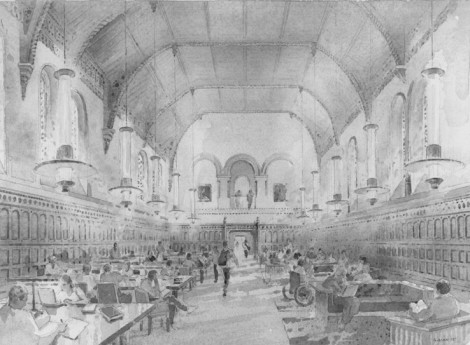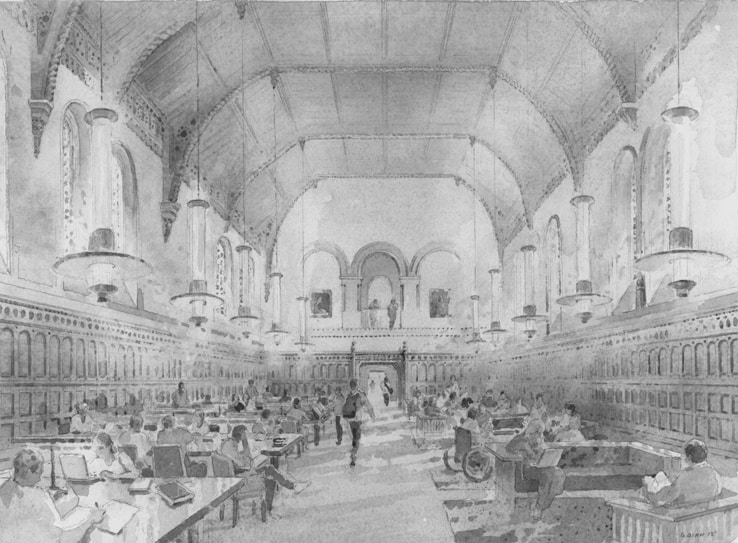University College student infrastructure projects may have to wait a little longer to get under way after a referendum to introduce a special levy failed to pass by the needed two-thirds majority. The referendum failed by just six votes.

Artists’ renderings of UC’s completed renovations.
Unofficial results on the University College Literary and Athletic Society (UCLit) website state that 242 students voted in favour of the special levy while 131 voted against. The tally puts the vote at 65 per cent, just shy of the two-thirds needed. The vote was held at the same time as students voted for executive positions on UCLit council.
“We were approached last year by the administration who had already created a plan for the renovations, and thought students might want the opportunity to contribute,” said outgoing UCLit president Nishi Kumar, who stepped down from her role on the elections and referenda committee to campaign in favour of the levy.“Obviously the campaigners on the ‘Yes’ side are disappointed, especially considering we were just a few votes short,” Kumar said.
While the vote this year has failed, UCLit president-elect Leo Chen said he will try to push for another vote next year. “I think it would be a shame for us to give up on the referendum with current support that we already have. With earlier promotion and greater education, I’m very optimistic that it will pass next year,” said Chen.
The referendum would have seen $12.50 added to fees for full-time students and $5 for part-time students at the college for a span of 20 years. In total it was hoped that the levy would have brought in $2 million during that time, and would have allowed some infrastructure projects to begin in the summer of 2014.
The rejection of the special levy means the college will now have to look elsewhere for funding sources, leaving the timeline for the renovation projects uncertain.
“There aren’t obvious sources, just waiting there, so it’ll delay the project a little bit,” said Donald Ainslie, principal at University College, who added that he would need to reach out into the community to secure more funding to make up the $2 million shortfall.
To date UC has raised $2.2 million from the administration and $2.8 million from alumni for the projects, but is still $10 million short of the funding goal.
A similar referendum was scheduled to take place in 2013, but was postponed after concerns were raised over what projects the money raised from the levy would fund. Student groups such as the Arts and Science Students Union (ASSU) and the Association of Part-Time Undergraduate Students (APUS) opposed the 2013 referendum because they claimed the question posed made it unclear as to whether the levy would fund projects for student space rather than renovations for maintenance that should be covered through other fees.
Shaw Tian, ASSU president, said that there was no opposition to the vote this year because the wording of the question had been changed to make it clear that the levy would only fund student-related projects.


